This column hosts portraits of cinemas in Europe and the rest of the world which are quite different from one another but have in common the fact that they have all adopted digital projection.
Cinema Tiberio
Country |
|
|
No. of screens |
Digital screens
number and technology |
Audio
System |
Italy |
Cinema Tiberio |
Rimini |
1 |
1 - Sony 4K projector |
Dolby 7.1 |
At the cinema in the cloisters
 by Virginia Fanin
by Virginia Fanin

12 December 2021 in Rimini will see the official inauguration of the museum project dedicated to Federico Fellini. The museum space will be spread over three venues - Palazzo del Fulgor, Castel Sismondo and Piazza Malatesta - consolidating the bonds of the Romagnolo town with its famous son, but also with the variegated world of the cinema.
To celebrate this event, DGT Online Informer turns the spotlight onto the movie theatre situated in the neighbourhood Fellini loved most.
A walk of less than ten minutes starting from the new museum area, immediately after the fine Tiberius bridge, a witness to the Roman Ariminum, brings you to San Giuliano a Mare. Featured by the Maestro in his films, the neighbourhood has dedicated several murales to him, re-evoking scenes from his works. In this picturesque borgo, a temple of Romagnolo cuisine, beloved of the inhabitants of Rimini looking for a movida removed from the crowded beach life, it’s possible to spend a quiet evening but one that is equally as special, watching a good film at the Cinema Teatro Tiberio, whose most remarkable feature is that it has been put together in the cloisters of the church of San Giuliano Martire.
A little history
In the years immediately following the Second World War, the parish priest Don Stefani decided to transform part of the cloisters into a cinema using simple benches made of pinewood and "shared" film reels that travelled by bicycle from one parish to the next.
The real Cinema Teatro Tiberio came into being in the ‘60s thanks to Don Agostino Amadori, who managed to arrange a theatre in a wing of the old convent, so as to offer not only continuous programming, but also live shows of music or entertainment in the local dialect.
In 1975 the chaplain, Don Romano Nicolini, took on the task of enlarging the stage for theatrical performances.
Between 1992 and 1994 the cinema remained closed, when a necropolis was discovered beneath the floor after excavations (it was supposed to be a matter of minor rebuilding work but instead…), and 29 tombs dating back to Roman times were found, with jewellery, coins, vases and the historical stratification of the site.
In 2003 the association Notorius Rimini Cineclub was founded with the intention of promoting cinematographic activities and in 2004 the theatre joined the FICE (Federazione Italiana Cinema d’Essai).
In 2008 came a second closure: the option was to close definitively or shift to digital. By joining the Microcinema project, the Tiberio managed to equip itself with an HD 1.3K projector, a new stereo system and a fixed satellite connection: on re-opening to the public, it brought Rimini - as a complete novelty - opera, ballets and concerts, live or recorded.
Two years later, thanks to the installation of air conditioning, the offer of films was freed from seasonal constraints, with comfortable screenings even in scorching-hot weather!
June 2013 saw a further two basic stages in the history of Rimini’s arthouse cinema: on the 13th for the first time an Italian cinema was connected live to the Gielgud Theatre in London where "The Scene" by Peter Morgan was staged, with Helen Mirren in the lead role. On the 30th, instead, a goodbye to analogical cinema was held and celebrated with a composite event entitled "Ciao 35 mm", organised around the screening of "The Artist".
In October cutting-edge digital technology arrived: the Sony 4K projector, another first for Rimini, used to present 007 Skyfall.
Not only films
The Cinema Tiberio, which belongs to the ACEC (Associazione Cattolica Esercenti Cinema) circuit, is a small one consisting of an auditorium seating 170 but Don Paolo Donati is proud of it and of the volunteers who contribute to managing it.
Thanks not only to the screening of films but also to connections with international theatres which bring Rimini’s audiences opera, ballet and concerts either live or recorded, the Tiberio has extended its audiences, placing its odds on customer loyalty, thanks to the introduction of subscriptions.
The Cinema Teatro Tiberio is also an important place for the town, since it hosts the Borgo’s local dialect-theatre company, school recitals, art history lessons, book presentations and conferences.
Coming events
On the website www.cinematiberio.com, as well as the programming of films, live events and more in general the calendar of added content can be seen.
Amongst the next appointments, on 19 December, in pride of place comes the Nutcracker Suite by the Bolshoi Ballet and, on 21 December, Tosca from the Barcelona Liceu.
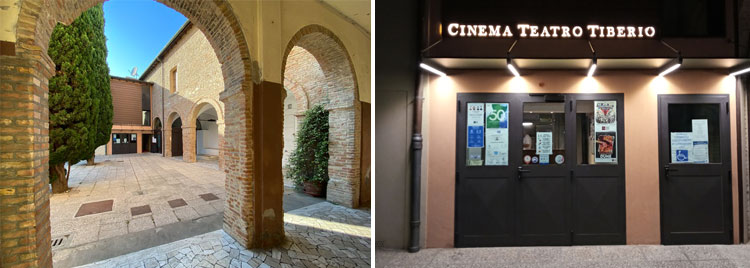
|
|
This column gives voice to the people who have already been working with added content for some time now, gaining first-hand experience in the field which we think is worth sharing internationally.
The Tiberio, a cinema at the service of culture and the territory

We meet Stefano Tonini, founder of the Notorious Rimini Cineclub, which
might be defined the “engine” of the Cinema Teatro Tiberio’s
activities.
- Added content has become a "speciality" of your cinema. Can you tell us about this experience?
We began in 2008, thanks to the formula suggested by Microcinema, that not only provided the equipment, but also the possibility of accessing decidedly innovative content for cinemas, such as opera and ballet.
E xperience showed us that ours was the right decision: the spectators who choose the Tiberio are more interested in this type of cultural initiative than typical multiscreen and multiplex audiences, who prefer "mainstream" programming. And thus we have become Rimini’s landmark theatre for added content and gradually perfected a "tailor-made" strategy for our customers. xperience showed us that ours was the right decision: the spectators who choose the Tiberio are more interested in this type of cultural initiative than typical multiscreen and multiplex audiences, who prefer "mainstream" programming. And thus we have become Rimini’s landmark theatre for added content and gradually perfected a "tailor-made" strategy for our customers.
We have launched a subscription for 5 operas costing 50 euros, when the normal price for a screening would be 12. In addition, we offer a free ticket for a film, with a dual objective: to secure the loyalty of the fans of melodrama (who are guaranteed the same seat for the entire season, just as happens at the theatre) and to offer an incentive to improve their knowledge of the cinema’s film programming.
At the same time we have realised that certain criteria commonly adopted for offers to a more adult audience, such as the scheduling of afternoon screenings, are not a winning choice in all cases: those who come to watch an opera here, even though they have retired, are mainly involved in lending their families a hand and looking after grandchildren in the afternoons, so that they prefer to go out in the evening. And convenient timing has greater appeal than the charm of the "live" show, which may even present technical problems at times. So we feel far safer with DCP, which offers excellent guarantees of consistent quality.
The result of our work is that in the pre-Covid period we could count on a core audience of around fifty for every opera screening, not to mention the "sold out" for the first night of the Scala.
- Your opera programming soon became a "best practice": in 2010, the leading Italian business newspaper “Sole 24 ore” was already quoting "Rheingold" screened at the Tiberio, connected live to the Scala in Milan, as one of the “non conventional examples of movie theatres that differ from the big multiplexes or the rhetoric accompanying 3D.” Is there any other content that you are successfully programming?
- Your opera programming soon became a "best practice": in 2010, the leading Italian business newspaper "Sole 24 ore" was already quoting "Rheingold" screened at the Tiberio, connected live to the Scala in Milan, as one of the "non conventional examples of movie theatres that differ from the big multiplexes or the rhetoric accompanying 3D." Is there any other content that you are successfully programming?
It has become a tradition, before and immediately after Christmas, to offer classical ballet, such as the Bolshoi’s or the Royal Ballet’s "Nutcracker Suite" which is an authentic evergreen for us and wins over young people passionate about dancing.
In particular the Sunday afternoon screenings for ballet schools are experiencing constant success. We also make sorties into other art forms, such as for example the theatre: we are proud to have an audience for the National Film Theatre, which we offer with English subtitles. As you can imagine, the numbers are not big but we are pleased to be one of the all but numerous reference points in Italy for fans of this genre.
Over the years we have managed to build relations with content distributors all over Europe, from Nexo Digital to Galileo Vision in Italy, from More2Screen in Great Britain to Versión Digital in Spain, or even directly with producers. In this way we even manage to screen contemporary shows with an international appeal, such as "Everybody's talking about Jamie" or "Riverdance 25th anniversary show".
As regards the opera, we have chosen not to screen the Met season, which would have insisted on exclusivity, but to offer a selection tailor-made to our own taste.
And so we have performances coming from the Royal Opera House, which offers particularly well calibrated material for cinemas, but also from the Liceu in Barcelona and the Opéra de Paris, which propose great interpreters and avantgarde directors, not all of whom are popular with our audiences.
- To hear you talk about this trajectory, which has led the Tiberio to become not only a cinema but also what is now fashionably referred to as a cultural hub, you seem to know your spectators one by one. Is this one of your strong points?
The Tiberio is part of the network of what were once parish cinemas and are now called "community theatres". In this new name there is a whole philosophy: a cinema at the service of the territory and local associations but above all of the spectators, so that they have the impression the cinema belongs to them, too.
It is no coincidence that we can count on the collaboration of many volunteers who look after the programming, deal with administration and accounting, make their IT skills available for communications and so on.
Not to speak of the dozens of people who take turns at the box-office - and here I want to thank Leo who is always present - acting as authentic antennae intercepting the mood and opinions of the public.
There is constant dialogue with the territory: it is a tradition of the Tiberio to offer shows for schools, encounters with authors and directors, book presentations, host local theatre companies and collaborate with festivals and with other local cinemas, for example in managing a summer arena, abandoning the usual logic of competition. Ever since 2015, right up to Covid, we have organised the Cinepicnic, a big party held at the Ponte di Tiberio reservoir, which revolves around the projection of a family film on the big, open-air screen and the sale of Romagnolo "fast food".
The objective is to celebrate August Bank Holiday with spectators but also to collect funds for continuing to improve the cinema’s structures and contributing to the parish’s charitable work.
To sum up, films and piadinas, to celebrate and to do some good.
https://youtu.be/NDVK3ASUl2A
|






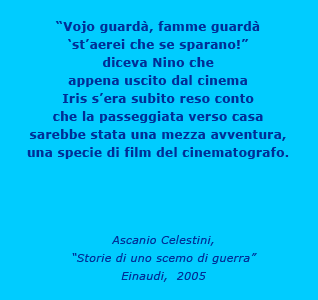
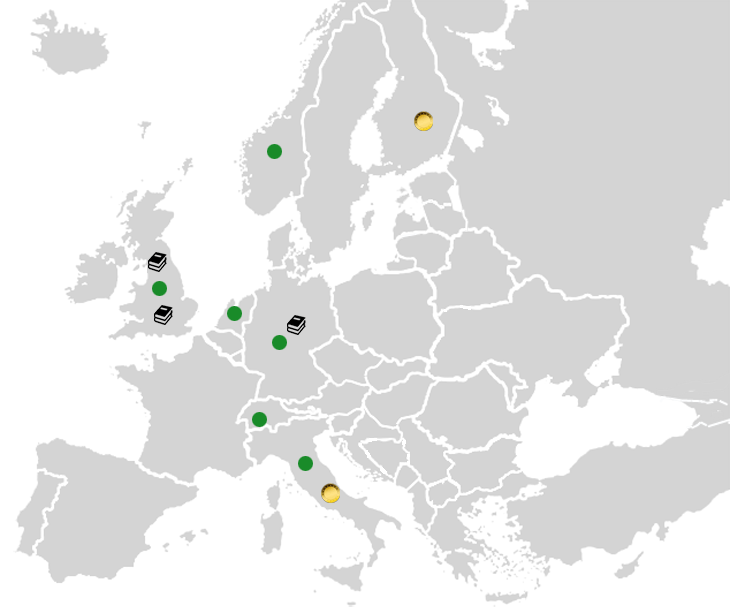







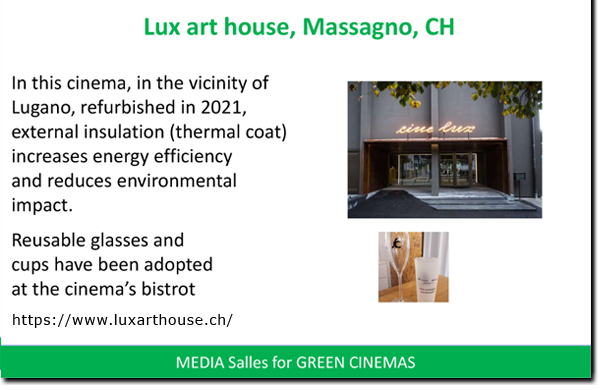

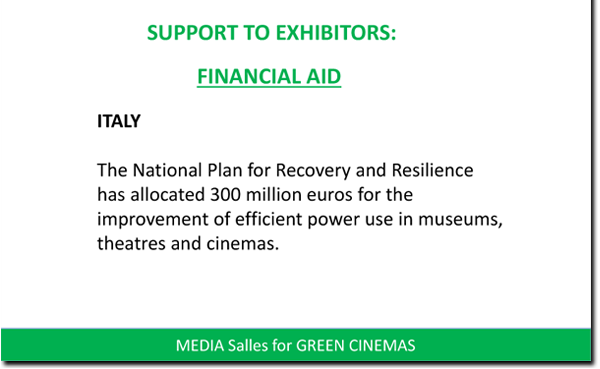



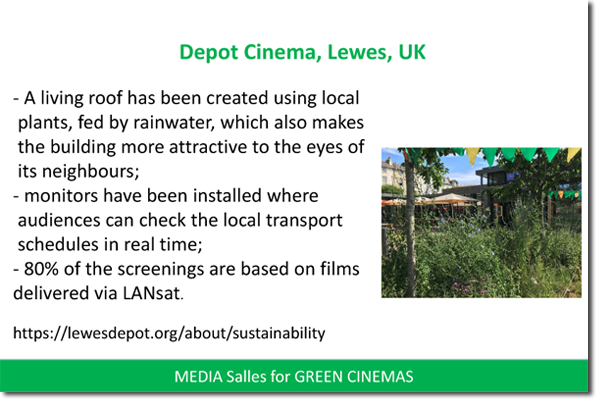




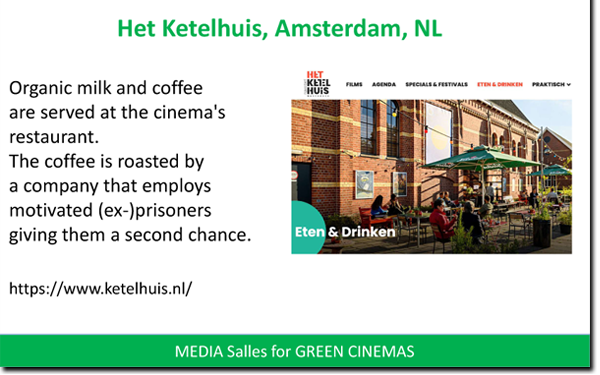
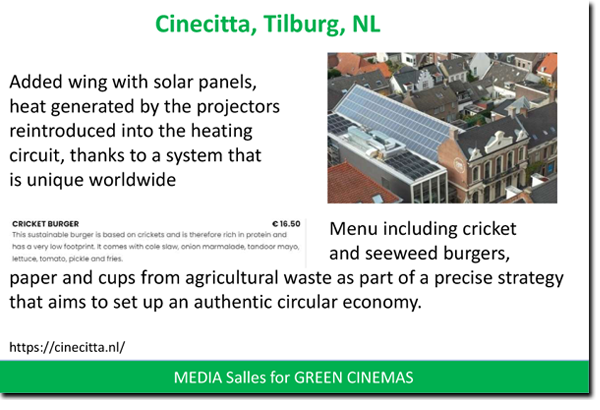
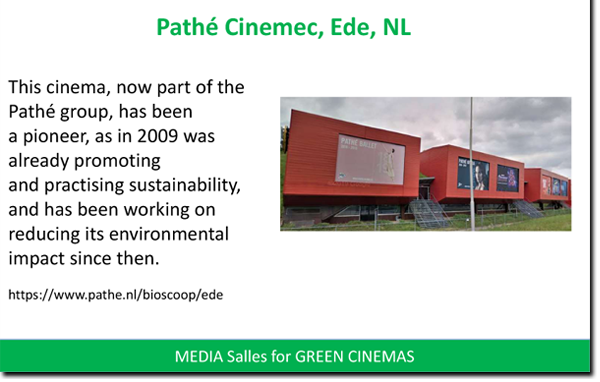

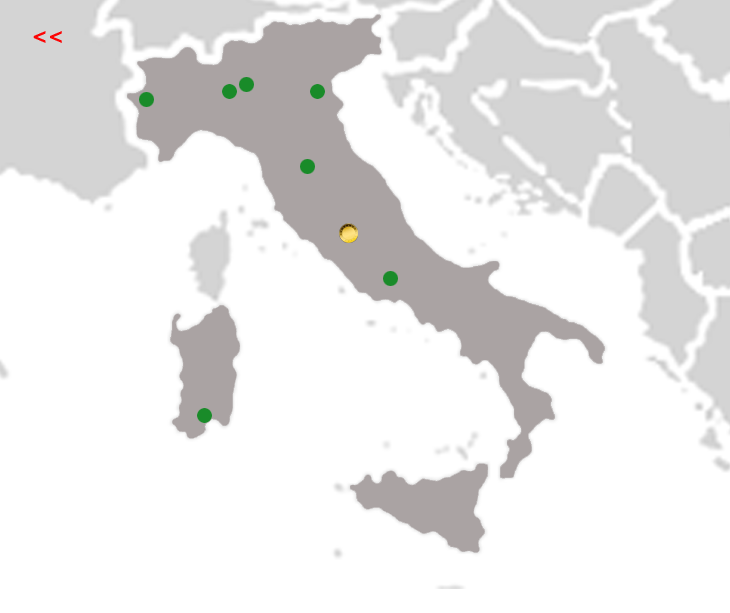








 by Virginia Fanin
by Virginia Fanin
 xperience showed us that ours was the right decision: the spectators who choose the Tiberio are more interested in this type of cultural initiative than typical multiscreen and multiplex audiences, who prefer "mainstream" programming. And thus we have become Rimini’s landmark theatre for added content and gradually perfected a "tailor-made" strategy for our customers.
xperience showed us that ours was the right decision: the spectators who choose the Tiberio are more interested in this type of cultural initiative than typical multiscreen and multiplex audiences, who prefer "mainstream" programming. And thus we have become Rimini’s landmark theatre for added content and gradually perfected a "tailor-made" strategy for our customers. 